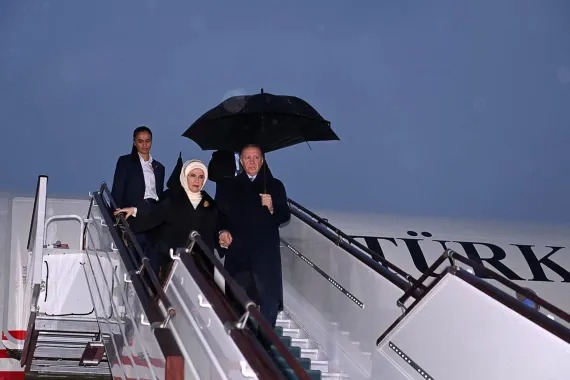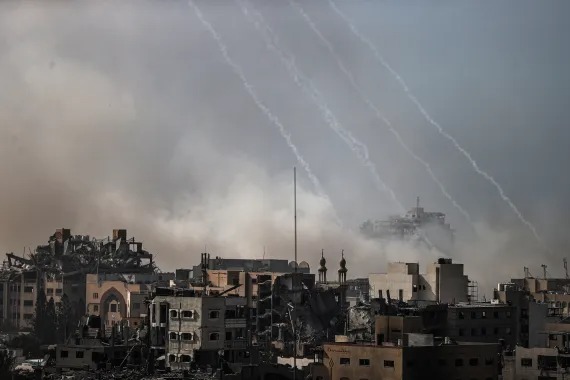Leaders from Russia, Turkey, Iran, and Pakistan are making significant diplomatic moves in Central Asia, signaling a shift in the region’s alliances. The traditionally Russia-dominated area is witnessing a flurry of high-profile visits, emphasizing the global powers’ eagerness to expand their influence.
Putin’s Strategic Talks in Astana
Russian President Vladimir Putin arrived in Kazakhstan’s capital, Astana, on Thursday for crucial talks with President Kassym-Jomart Tokayev. This visit follows French President Emmanuel Macron’s recent trip, highlighting the growing interest in accelerating economic cooperation in the region. Despite Russia’s historical dominance, Central Asian nations are exploring new partnerships in the wake of Russia’s ongoing conflict with Ukraine.
Turkey, Iran, and Pakistan Unite in Uzbekistan
Simultaneously, leaders from Turkey, Iran, and Pakistan, namely Recep Tayyip Erdogan, Ebrahim Raisi, and Anwaar ul Haq Kakar, are converging on Uzbekistan for a regional economic summit. This collective engagement underscores the changing dynamics as former Soviet countries seek diversified alliances beyond Russia. The visits aim to strengthen economic ties, presenting Central Asia with alternative global partners.
Central Asia’s Pivot Amid Global Power Rivalry
The intense diplomatic activity in Central Asia reveals the region’s openness to new partnerships, challenging Russia’s grip that has endured for decades. With more than 30 years passing since the Soviet Union’s collapse, Central Asian nations are now actively seeking alliances beyond their historical ties, creating a complex web of international relationships.
Amid this shifting landscape, China’s Belt and Road Initiative has positioned itself as a key player, while the European Union, the United States, Iran, and Turkey compete for influence. The region’s leaders are grappling with the need to balance longstanding partnerships with Russia against the allure of engaging with emerging global powers. While the global powers navigate this intricate dance for influence, the upcoming regional Economic Cooperation Organisation summit in Tashkent promises to be a pivotal moment for the participating nations.
Regional Summit Agenda: Trade, Humanitarian Cooperation, and Transport
The summit, set to include Iran, Turkey, Pakistan, and Central Asian leaders, will predominantly focus on trade, humanitarian cooperation, and transport. The landlocked Central Asian countries are actively seeking access to the sea, with discussions centered around potential routes through Pakistan.
Russia, despite facing pressure in the region, remains a key partner. Moscow has renewed investments in the energy sector, strategically launching projects such as supplying gas to Uzbekistan via Kazakhstan. Additionally, talks are underway regarding ambitious plans for nuclear power plants and hydroelectric projects in various Central Asian countries.
The Unspoken Issue: Gaza Conflict Looms Large
Despite the pressing geopolitical matters, the ongoing conflict in Gaza is likely to cast a shadow over the summit. While Uzbekistan has stated that the Israel-Hamas conflict will not be on the agenda, Turkish President Erdogan, known for his vocal criticism of Israel, may broach the topic. Tehran, a staunch supporter of Hamas, has also expressed its interest in discussing the conflict, setting the stage for potential tensions during the summit.
As Central Asia emerges from the shadows of its historical alliances, the diplomatic activities of Russia, Turkey, Iran, and Pakistan highlight the region’s pivotal role in the evolving global power dynamics. The Economic Cooperation Organisation summit is poised to shape the future trajectory of Central Asia’s international engagements, providing a platform for leaders to foster economic cooperation, address regional challenges, and navigate the complexities of a multipolar world.
















